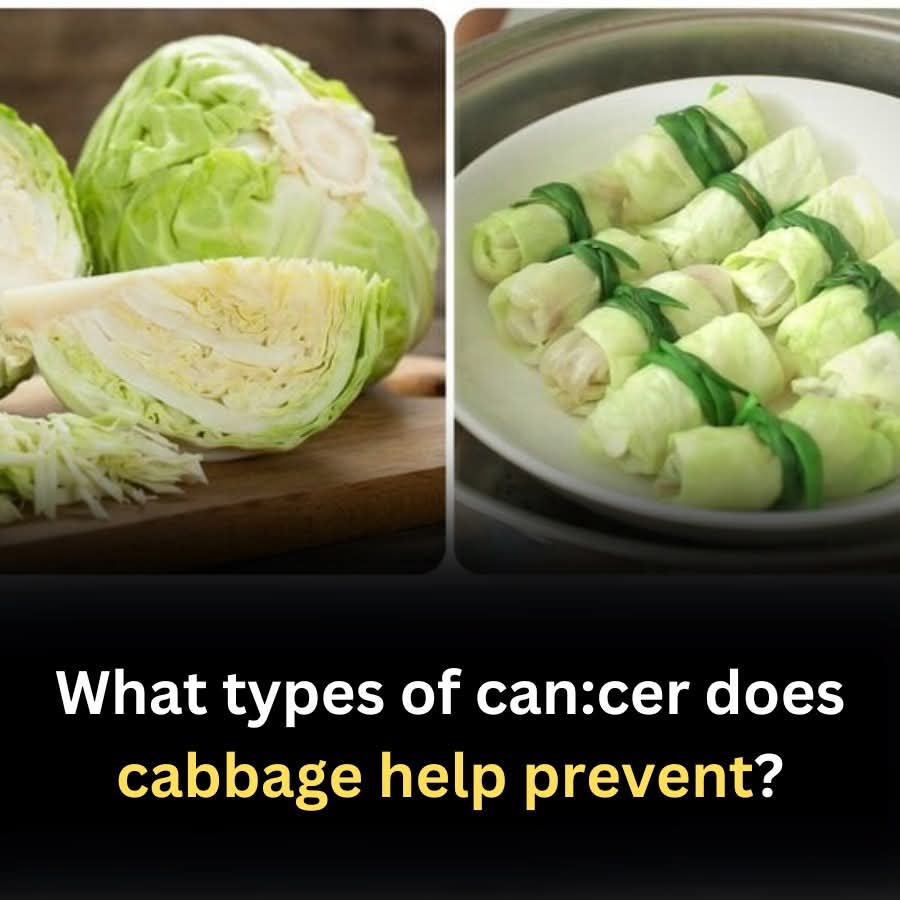What Types of Cancer Does Cabbage Help Prevent? Discover the Science Behind This Humble Vegetable

You’ve seen it on your plate countless times — boiled, stir-fried, or tucked into coleslaw. But did you know that cabbage is a powerful anti-cancer vegetable that could protect you from several life-threatening diseases?
Researchers have found that cabbage — especially when eaten raw or lightly cooked — contains compounds that may reduce your risk of certain cancers. Here’s a deep dive into how it works and which cancers it can help prevent.
The Cancer-Fighting Compounds in Cabbage
Cabbage is part of the cruciferous vegetable family, which also includes broccoli, cauliflower, and Brussels sprouts. These vegetables are rich in glucosinolates — plant chemicals that convert into isothiocyanates and indoles during digestion.
These bioactive compounds have been shown to:
- Neutralize carcinogens (cancer-causing agents)
- Reduce inflammation
- Slow the growth of cancer cells
- Boost detoxification in the liver
Cancers Cabbage May Help Prevent
1. Colorectal Cancer
Studies have consistently linked a high intake of cruciferous vegetables with a lower risk of colon and rectal cancers. The fiber, antioxidants, and detoxifying compounds in cabbage work together to support gut health and prevent abnormal cell growth.
2. Lung Cancer
Isothiocyanates found in cabbage may help protect lung tissue from damage, particularly in former smokers. Some observational studies suggest a decreased risk of lung cancer in people who frequently eat cruciferous vegetables.
3. Breast Cancer
Cabbage contains indole-3-carbinol, which may help regulate estrogen metabolism. This is especially important in estrogen-sensitive cancers like breast cancer, potentially reducing the risk in women.
4. Prostate Cancer
Men who eat cabbage and other cruciferous vegetables regularly may have a lower risk of prostate cancer. The anti-inflammatory effects and hormonal balancing properties are thought to be protective.
5. Stomach Cancer
In countries where cabbage is a dietary staple, such as Korea and Eastern Europe, research has suggested lower rates of gastric cancer. Its antioxidants and antimicrobial effects help protect the stomach lining and reduce infection-related damage.
Best Ways to Eat Cabbage for Maximum Benefits
- Raw: In salads or coleslaw to preserve heat-sensitive compounds.
- Fermented: As sauerkraut or kimchi, which adds probiotics and boosts gut health.
- Lightly Steamed or Stir-Fried: Retains most nutrients while enhancing digestibility.
- Juiced: Cabbage juice is especially popular for stomach and ulcer-related health.
Important Tips
- Don’t overcook cabbage — high heat destroys beneficial compounds.
- Aim for 3–5 servings of cruciferous vegetables per week for noticeable benefits.
- Always wash cabbage well to remove pesticide residues.
FAQs
Q: Can cabbage cure cancer?
No, cabbage is not a cure. However, regular consumption as part of a healthy diet may lower the risk of certain types of cancer.
Q: Is red cabbage better than green cabbage?
Red cabbage has more antioxidants, including anthocyanins, which offer extra protection against oxidative stress and inflammation.
Q: Are supplements as effective as eating cabbage?
Whole foods like cabbage offer a complex mix of nutrients that supplements can’t fully replicate. Fresh food is always better.
Conclusion
Cabbage might seem simple, but it’s packed with disease-fighting power. By adding it regularly to your meals, you’re doing your body a great favor — including possibly preventing cancer. So the next time you see cabbage at the store, don’t walk past it — pick it up and eat your way to better health.






